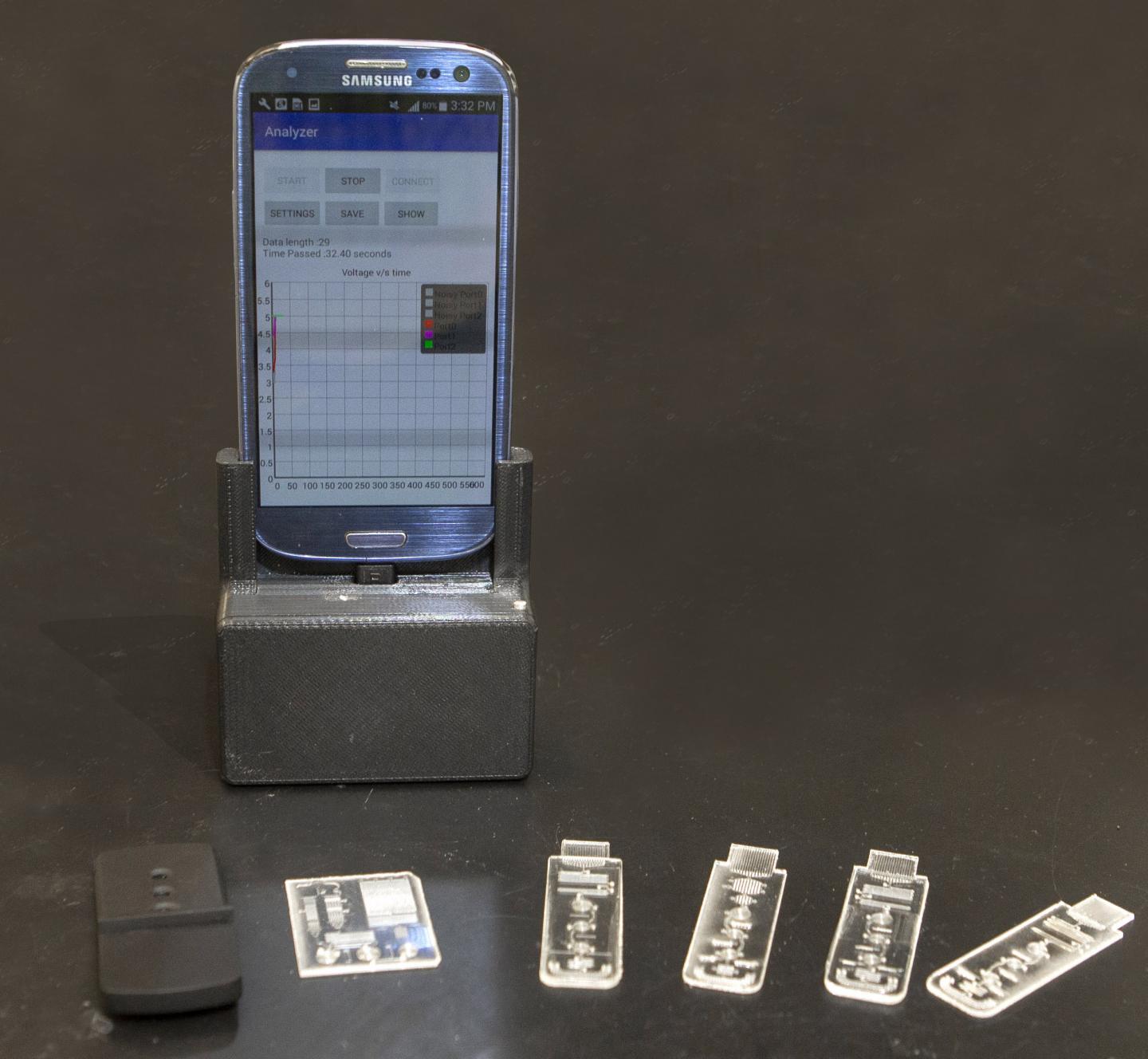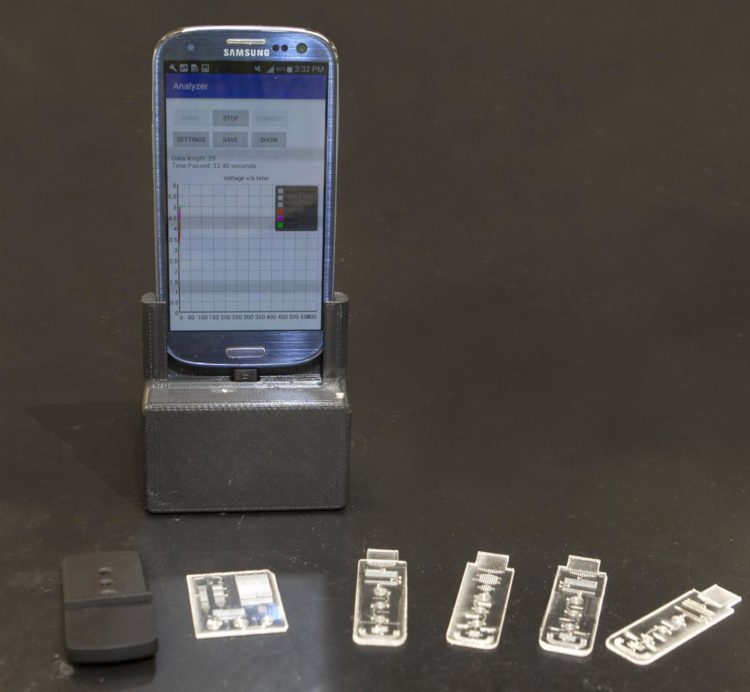Smartphone lab delivers test results in ‘spit’ second

Credit: Joseph Fuqua II/UC Creative Services
Engineers with the University of Cincinnati have created a tiny portable lab that plugs into your phone, connecting it automatically to a doctor’s office through a custom app UC developed.
The lab the size of a credit card can diagnose infectious diseases such as coronavirus, malaria, HIV or Lyme disease or countless other health conditions like depression and anxiety.
The patient simply puts a single-use plastic lab chip into his or her mouth then plugs that into a slot in the box to test the saliva.
The device automatically transmits results to the patient’s doctor through a custom app UC created for nearly instant results.
UC professor Chong Ahn and his research team used the smartphone device to test for malaria. But the device could be used for smart point of care testing for countless chronic or infectious diseases or to measure hormones related to stress.
“Right now it takes several hours or even days to diagnose in a lab, even when people are showing symptoms. The disease can spread,” Ahn said.
The study was published in the Nature journal Microsystems & Nanoengineering.
His research team created a novel lab chip that uses natural capillary action, the tendency for a liquid to adhere to a surface, to draw a sample down two channels called a “microchannel capillary flow assay.” One channel mixes the sample with freeze-dried detection antibodies. The other contains a freeze-dried luminescent material to read the results when the split samples combine again on three sensors.
Ahn said the device is accurate, simple to use and inexpensive.
“The performance is comparable to laboratory tests. The cost is cheaper. And it’s user-friendly,” Ahn said. “We wanted to make it simple so anyone could use it without training or support.”
UC doctoral student Sthitodhi Ghosh, the study’s lead author, said the biggest advancement in the device is in the novel design of its tiny channels that naturally draw the sample through the sensor arrays using capillary flow. Ahn is Ghosh’s Ph.D. advisor.
“The entire test takes place on the chip automatically. You don’t have to do anything. This is the future of personal healthcare,” Ghosh said.
While the device has applications for diagnosing or monitoring viruses or other diseases, Ahn said he sees potential in the field of mental health, where doctors already utilize smartphones to help track the wellness of patients.
###
Media Contact
Michael Miller
[email protected]
609-675-8616
Original Source
https:/
Related Journal Article
http://dx.





